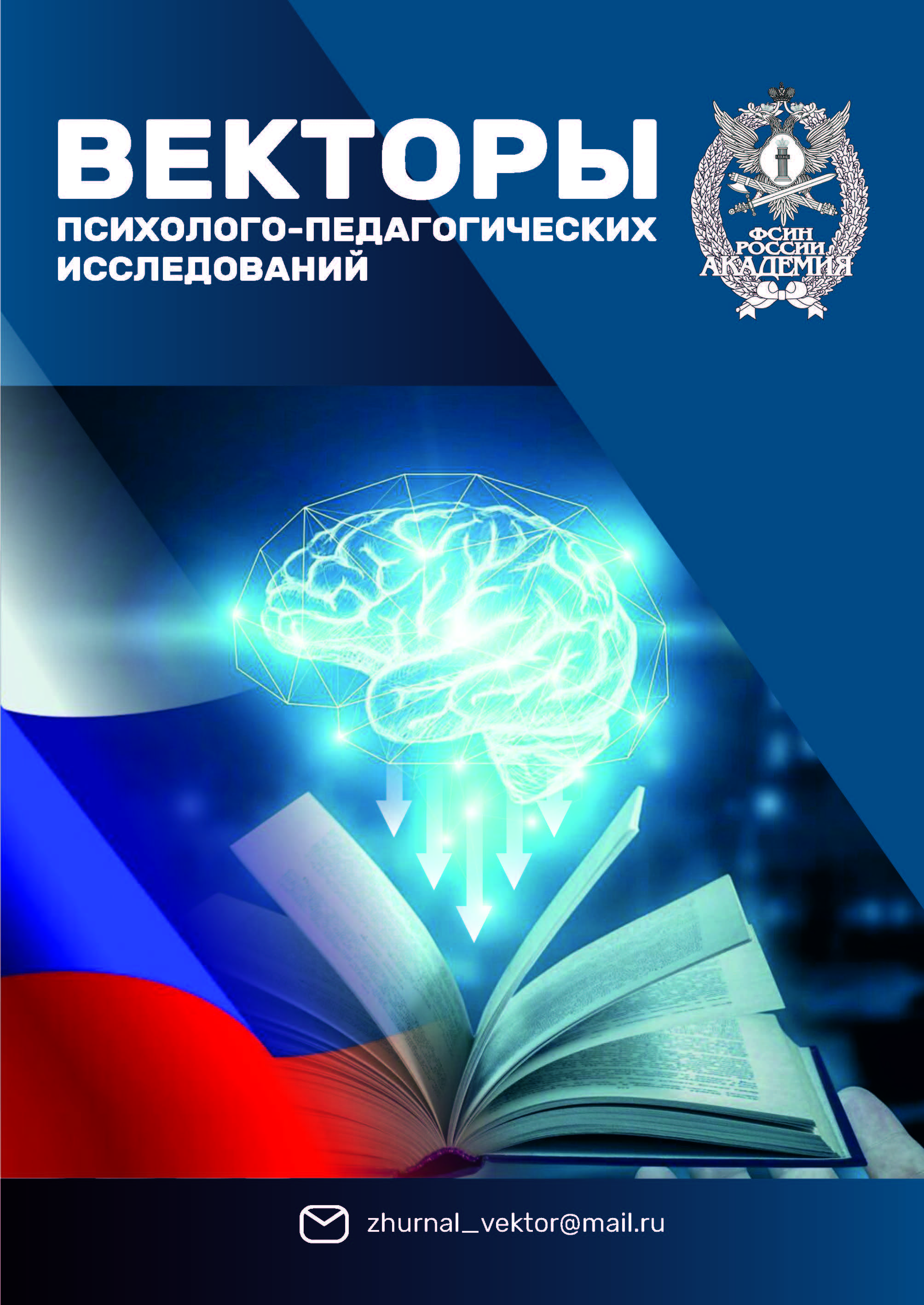UDC 159.99
The Mental set effect (MS, Einstellung) is a tendency that immediately predisposes an organism to one type of motor or conscious action. MS affects people of various professions, including programmers. The purpose of the study is to expand the knowledge of programmers and programming teachers of MS, its influence on the work of programmers through a survey of scientific studies. The results of these studies were as follows. MS is one of the traps of a programmer's thinking. Having fallen into the trap, a programmer applies not the best solutions. Such solutions are found in the programs of modern students. When learning programming, half of the students exhibit MS. The sequence of tasks affects MS. The more experienced the programmers, the less often they exhibit MS, up to its overcoming. When redesigning introductory programming courses, it is necessary to take MS into account. Together with MS, functional fixity can affect, the manifestations of which are frequent among students. The surveyed studies made it possible to systematize their results, which can be used in further studies and practices, and study plans: their stages, used tasks, recommendations. Based on the analysis of the studies, we propose to reduce the effect of MS by expanding the knowledge of programmers of new approaches to solving problems, new ways of applying existing solutions, modern programming technologies, the MS itself, as well as expanding the general outlook of programmers; formulating tasks and their order of execution taking into account knowledge about MS; adapting programming courses in universities considering knowledge of the effect.
mental set, Einstellung, psychology, programming, software engineering, learning, psychological study, survey
1. Wittenberger, C. 1970, ‘The Energetic Economy of the Organism in Animal Evolution’, Acta Biotheoretica, vol. 19, iss. 3–4, pp. 171–185.
2. Peters, A. 2011, ‘The selfish brain: competition for energy resources’, American Journal of Human Biology, iss. 23, pp. 29–34, doi:https://doi.org/10.1002/ajhb.21106.
3. Peters, A., Schweiger, U., Pellerin, L., Hubold, C., Oltmanns, K. M., Conrad, M., Schultes, B., Born, J. & Fehma, H. L. 2004, ‘The selfish brain: competition for energy resources’, Neuroscience and Biobehavioral Reviews, vol. 28, iss. 2, pp. 143–180, doi:https://doi.org/10.1016/j.neubiorev.2004.03.002.
4. Grams, T. 1988, ‘Thinking Traps in Programming – A Systematic Collection of Examples’, IFAC Proceedings Volumes, vol. 21, iss. 18, pp. 95–100.
5. Lane, D. M. & Jensen, D. G. 1993, ‘Einstellung: Knowledge of the Phenomenon Facilitates Problem Solving’, Proceedings of the Human Factors and Ergonomics Society Annual Meeting, vol. 37, iss. 18, pp. 1277–1280.
6. Tukhtieva, N. H. 2014, ‘The influence of types of changes in irrelevant task parameters on the installation effect’, Bulletin of St. Petersburg State University. Series 12, iss. 3, pp. 41–48.
7. Luchins, A. S. 1942, ‘Mechanization in Problem Solving: The Effect of Einstellung’, Psychological Monographs, vol. 54, iss. 6.
8. Warren, H. C. 1934, Dictionary of Psychology, Houghton Mifflin Co.
9. Sergeyuk, A., Titov, S., Golubev, Ya. & Bryksin, T. 2023, ‘Overcoming the Mental Set Effect in Programming Problem Solving’, in Proceedings of the 34th PPIG, pp. 22–36.
10. Binz, M. & Schulz, E. 2023, ‘Reconstructing the Einstellung Effect’, Computational Brain & Behavior, vol. 6, iss. 3, pp. 526–542.
11. Duncker, K. 1945, ‘On Problem-Solving’, Psychological Monographs, vol. 58, iss. 5.
12. Prutskov, A. V. 2022, The subtleties of programming in examples: textbook, Kurs, Moscow.
13. Prutskov, A. V. 2024, ‘Teaching Java programming in higher education institutions: pedagogical aspects’, Humanitarian studies of Central Russia, iss. 4, pp. 62–68, doi:https://doi.org/10.24412/2541-9056-2024-433-62-68.
14. Obispo, J. R. C., Castro, F. E. V. C. G. & Rodrigo, M. M. T. 2018, ‘Incidence of Einstellung Effect among Programming Students and its Relationship with Achievement’, in 1st Information Computing Education, Cebu City, Philippines, October 4–6, 2018, Cebu City.
15. Soloway, E. 1986, ‘Learning to Program = Learning to Construct Mechanisms and Explanations’, Communications of the ACM, vol. 29, iss. 9, pp. 850–858.
16. Castro, F. E. V. C. G. & Fisler, K. 2016, ‘On the Interplay Between Bottom-Up and Datatype-Driven Program Design’, in 47th ACM Technical Symposium on Computing Science Education, February 17, 2016, pp. 205–210.
17. Jones, M. 2007, ‘The Redesign of the Delivery of an Introductory Programming Unit’, Innovation in Teaching and Learning in Information and Computer Sciences, vol. 6, iss. 4, pp. 169–182, doi:https://doi.org/10.11120/ital.2007.06040169.
18. Talandron-Felipe, M. M. & Bonifacio, K. L. 2019, ‘Investigating Functional Fixedness among Novice Student Programmers’, in The 27th International Conference on Computers in Education, December, 2019.
19. Chrysikou, E. G. & Weisberg, R. W. 2005, ‘Following the Wrong Footsteps: Fixation Effects of Pictorial Examples in a Design Problem-Solving Task’, Journal of Experimental Psychology: Learning, Memory, and Cognition, vol. 31, iss. 5, p. 1134.
20. Tempel, T. & Frings, C. 2019, ‘Directed Forgetting in Problem Solving’, Acta Psychologica, iss. 201, 102955, doi:https://doi.org/10.1016/j.actpsy.2019.102955.
21. Wiese, E. S., Yen, M., Chen, A., Santos, L. A. & Fox, A. 2017, ‘Teaching Students to Recognize and Implement Good Coding Style’, in The 4th ACM Conference on Learning @ Scale, pp. 41–50.
22. Lenberg, P., Feldt, R. &Wallgren, L. G. 2015, ‘Behavioral Software Engineering: A Definition and Systematic Literature Review’, Journal of Systems and Software, iss. 107, pp. 15–37.
23. Bidlake, L., Aubanel, E. & Voyer, D. 2020, ‘Systematic Literature Review of Empirical Studies on Mental Representations of Programs’, Journal of Systems and Software, iss. 165, 110565.
24. Heinonen, A., Lehtelä, B., Hellas, A. & Fagerholm, F. 2023, ‘Synthesizing research on programmers’ mental models of programs, tasks and concepts – A systematic literature review’, Information and Software Technology, iss. 164, 107300, doi:https://doi.org/10.1016/j.infsof.2023.107300.








